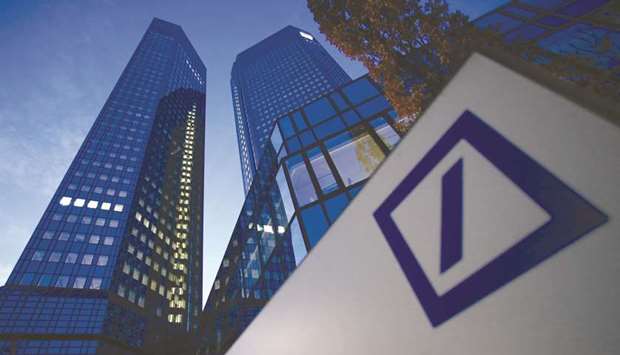Its forecast that full-year trading revenue will rise is bolder than that of its peers. While other US and European trading behemoths are also predicting a boost to trading, they’ve restricted themselves to the shorter term.
Traders crave volatility, or movements in asset prices, because it spurs clients to make bets and hedge their investments, and 2017 promised to be a year of lucrative uncertainty with Donald Trump taking office, Brexit and elections in Germany, France and The Netherlands.
Instead, more chaotic markets didn’t appear until early this year as central banks continued to pump billions of dollars into economies.
Deutsche Bank was overly optimistic the year before, predicting higher trading revenue for 2017 in its annual report published early last year. Instead, the unit’s income fell to the lowest since the financial crisis in 2008.
While some other big investment banks like Credit Suisse Group AG, Citigroup Inc and JPMorgan have also issued optimistic outlooks based on recent market volatility, they have limited their forecasts to the first months of the year. Deutsche Bank didn’t give any guidance on its first-quarter results in its annual report and didn’t provide specific targets for full-year trading.
Deutsche Bank had a full-year net loss of €735mn ($906mn) last year, it said. That’s higher than the initial estimate of €500mn published in February as the bank was hit by a decrease in deferred tax assets in the UK and higher-than-expected expenses for bonuses in the fourth quarter, a spokesman said.
Deutsche Bank rose as much as 1.1% in Frankfurt trading and was up 0.5% at €12.84 on Friday. The stock has declined 21% in the last 12 months, compared with a 1.1% gain on the Bloomberg Europe 500 Banks and Financial Services Index.
Fees for mergers and acquisitions advice were slightly up last year but the bank missed out on Germany’s biggest deal so far this year, the €22bn acquisition of Innogy SE by EON SE.
That could earn the participating investment banks as much as €70mn ($86mn) in fees on each side of the deal, according to an estimate from research firm Freeman & Co.
Deutsche Bank said it expects to grow market share in its origination and advisory business, driven by a recovery in equity origination, higher advisory revenues and more cross- border M&A transactions.
Chief executive officer John Cryan has been promising a return to “prudent growth” ever since the bank raised capital in a share sale a year ago.
Instead the bank has shrunk in every single quarter since. The CEO expressed disappointment about the results at the bank’s annual press conference in February and promised that he would finally restore both growth and a positive bottom line to the bank in 2018.
“As we look forward, the focus has to be trained squarely on revenues and profitability,” Cryan wrote on Friday in his letter to shareholders. “We have laid a strong foundation to continue to grow with our clients.
The market environment for our business also improved at the beginning of the year.” Cryan also highlighted the bank’s continued focus on cutting costs. The lender said in February that it will miss its adjusted cost target for 2018 by about 1bn euros as failed to complete several planned asset disposals. The CEO elected not to take a bonus for the third straight year.
Expected cost synergies from the merger of its German retail bank subsidiaries have been delayed from this year into next and the bank is also anticipating higher costs for its preparations for Brexit and implementation of the MiFID regulation, it said in the annual report. Expenses on litigation and restructuring as well as credit costs likely will also rise, the bank said.

